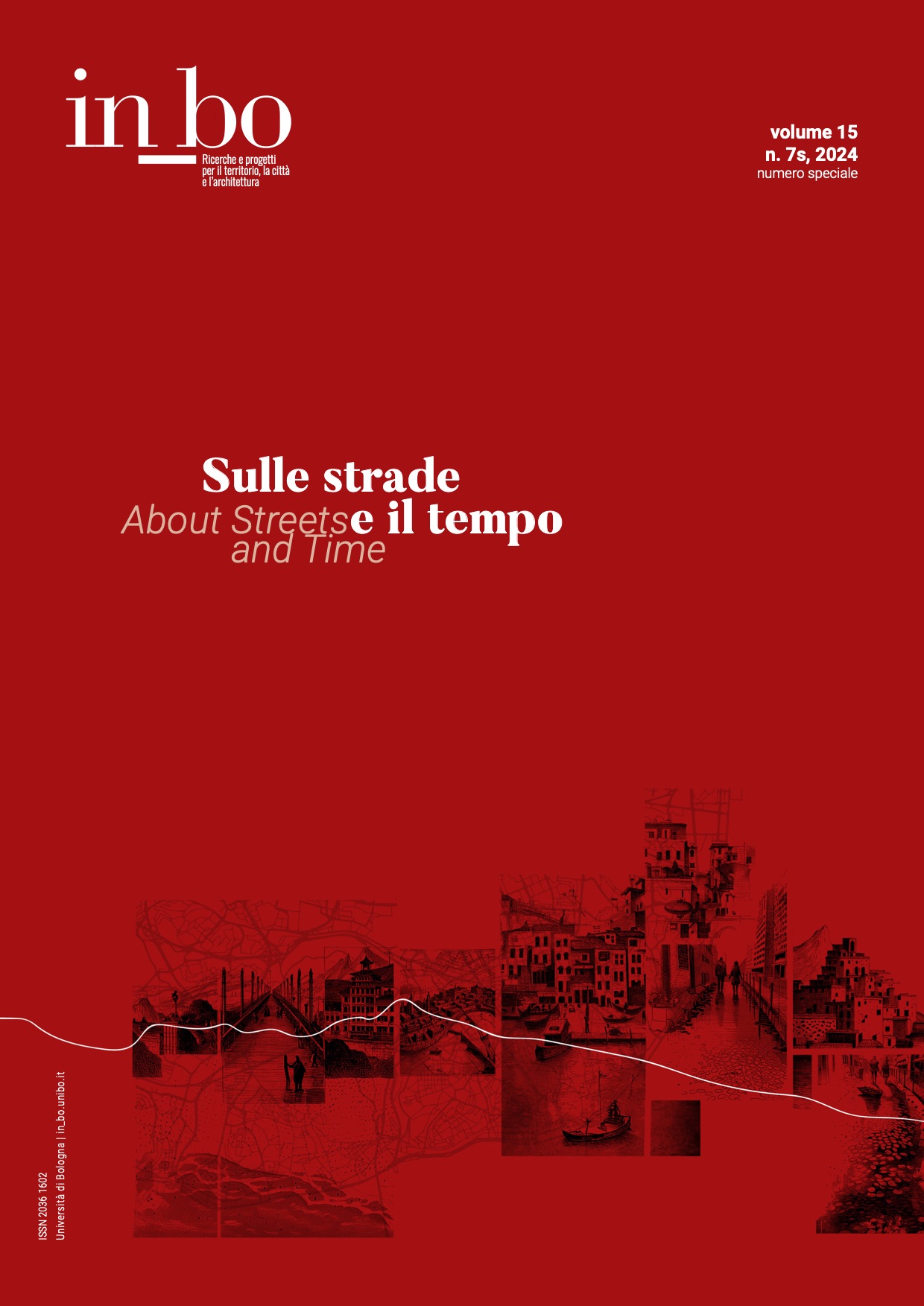Streetscapes as Collective Spaces in Dar es Salaam’s Informal Settlements
DOI:
https://doi.org/10.6092/issn.2036-1602/20408Keywords:
informal settlements, sustainable development, urbanisation, spatial features, TanzaniaAbstract
Due to a massive shortage of housing alternatives, the creation and expansion of informal settlements in the global South have become an instant answer for individuals searching for places to live. Researchers and organisations are stressing the importance of public spaces in informal settlements. This paper uses the method of a case study to understand and assess the typological features of specific streetscapes by identifying their spatial characteristics, attributes, and socio-spatial configurations. The process of permanently claiming and appropriating open spaces in the streets is examined through the Mlalakuwa informal settlement neighbourhood in Dar es Salaam. Observations and qualitative data collection were the methods used in this research. The findings show that the space typology is a product of local human activities and connection networks that have been created to support the daily uses and routines, together with the liveliness with which the streetscape functions as a collective space. The contribution of this paper is to create knowledge on the different typological shapes of collective spaces in the Mlalakuwa community and how they are linked to their local needs. It will also raise explicit awareness among the community and policymakers. Understanding these shapes will be a step forward in the treatment of streetscapes for the purpose of improving people’s future lives.
Downloads
Published
How to Cite
Issue
Section
License
Copyright (c) 2024 Jacob Lutta, Yves Schoonjans

This work is licensed under a Creative Commons Attribution-NonCommercial 4.0 International License.





